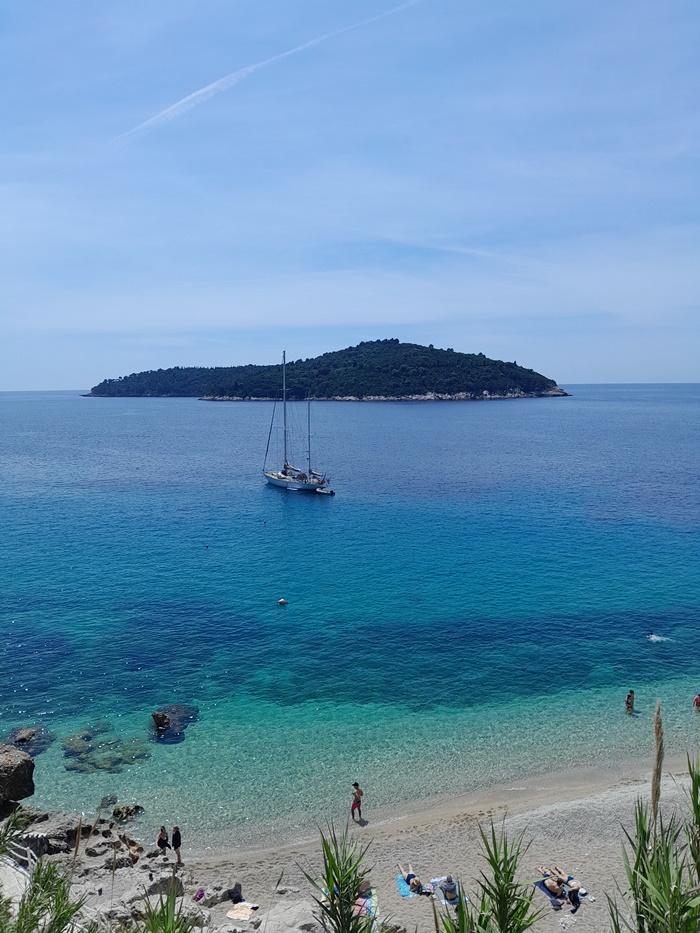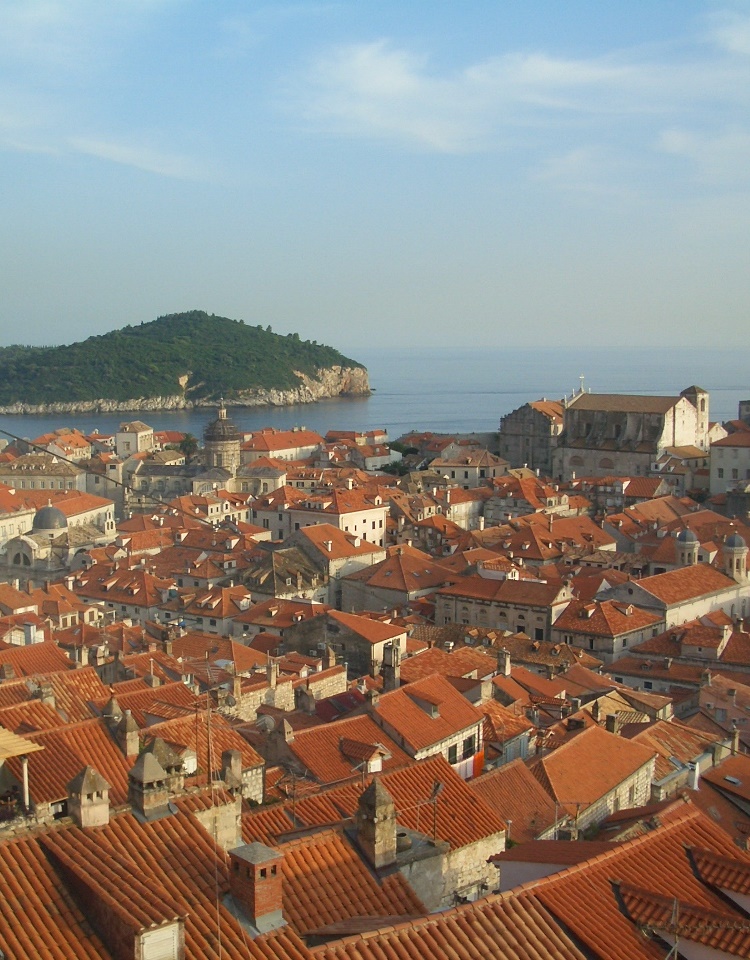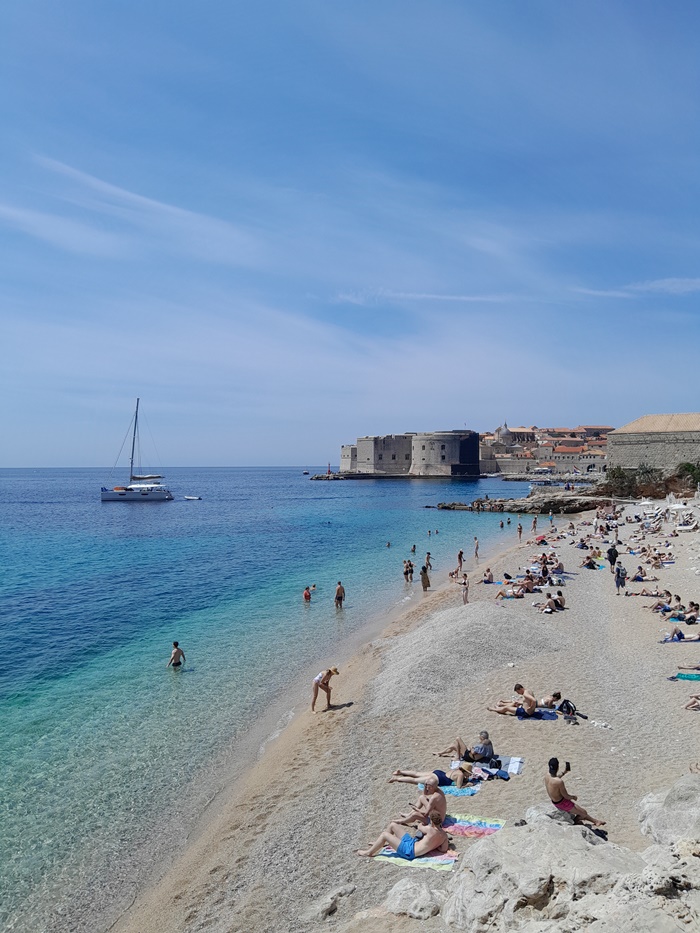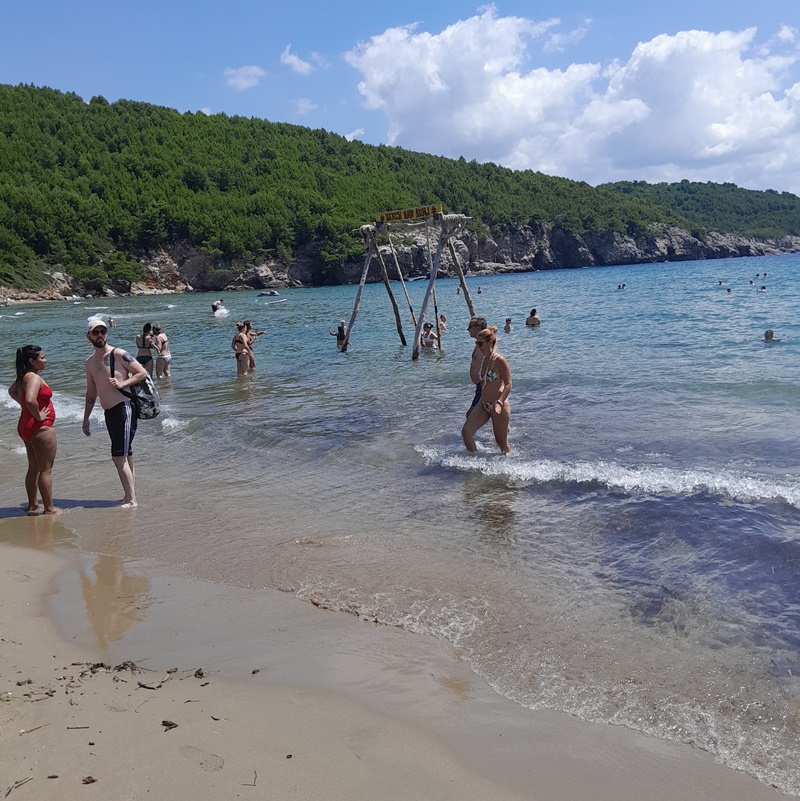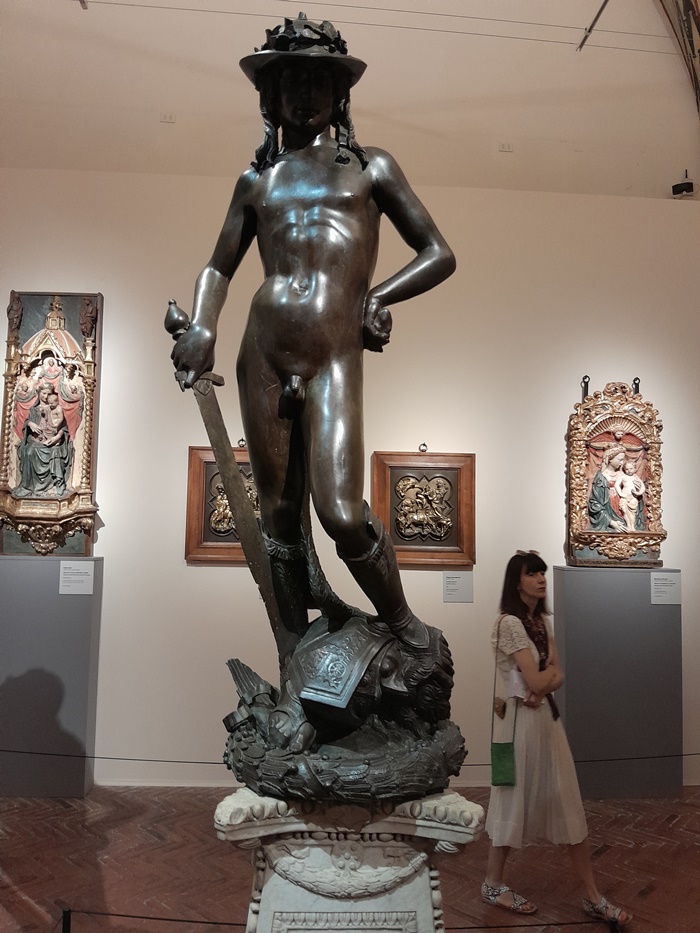- Home
- Dubrovnik Pass
A Complete Guide to Dubrovnik Pass
When exploring Dubrovnik consider buying Dubrovnik Pass that grants you free entry to famous City walls and a number of museums (in Dubrovnik and Cavtat), free rides on city buses and various discounts in selected restaurants, stores and travel agencies.
The Dubrovnik Pass is available as a 1-day (€35), 3-days (€45) and and 7-days pass (€55) and is activated with the first visit to any sight or by picking up a bus ticket from selling points. 👍 See 18 discounted tours in Dubrovnik!
Is Dubrovnik Pass worth buying
Taking in consideration that single ticket for the City walls costs €35, exactly the same as the daily Dubrovnik Pass, the pass is good value and worth it since it allows you to save money on bus tickets, museum and gallery visits and other discounts. Visit to Lovrijenac Fortress is also included in the pass!
Choose the pass that best suits you, regarding the number of days you stay in Dubrovnik. The Pass may not be the best value for children. Some sights, such as the Dubrovnik City walls, have children discounts anyway. 👍 16 great island-hopping ideas from Dubrovnik!
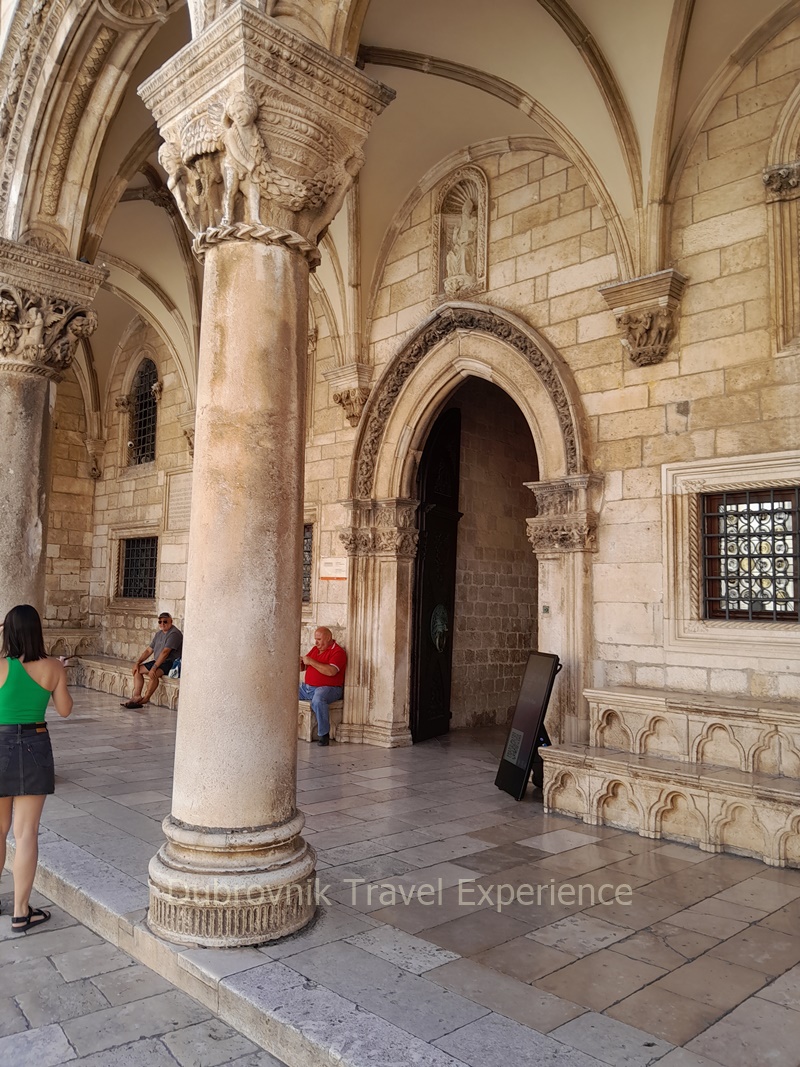 Rector's Palace houses the Cultural History Museum (free with Dubrovnik Pass)
Rector's Palace houses the Cultural History Museum (free with Dubrovnik Pass)This webpage contains affiliate links. Please read our disclosure policy.
Where to buy Dubrovnik Pass
The easiest way to buy Dubrovnik Pass is online but you can get it once you arrive to Dubrovnik from Tourist Boards (Pile, Gruz, Lapad, Zupa Dubrovacka - Mlini, Cavtat), Libertas sales points and some travel agencies throughout the city. If staying in one of the many hotels, buy the Dubrovnik Pass from the reception.
How to use Dubrovnik Pass
The Dubrovnik Passes are activated after the first visit to a sight or after picking up the bus tickets from Libertas sales points or a driver in the city bus. The Pass allows you a one-time visit to every sight/museum meaning you can't return the next day with the same Pass.
Free sights included in Dubrovnik Pass
1. The Dubrovnik City walls
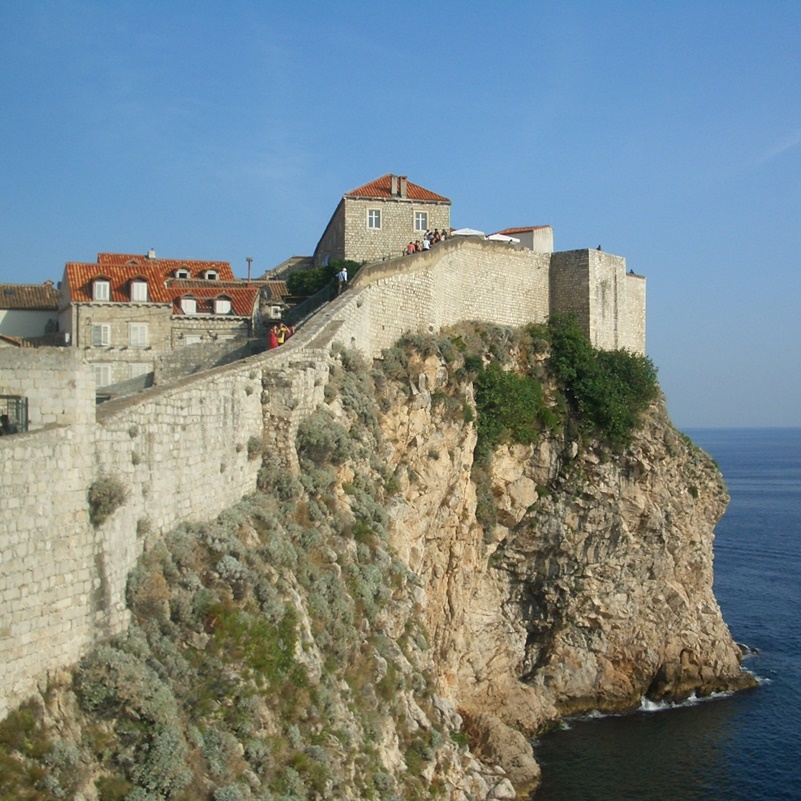 Dubrovnik's City walls
Dubrovnik's City wallsThe historic walls of Dubrovnik are the most visited sight among tourists. They are open all-year round with different opening times depending on the season. The adult entrance fee is €35, while children under 18 pays €15.
The main entrance to the walls is at the beginning of Stradun, when reached from the western Pile Gate entrance to the Old Town. The other entrances are: next to the Dominican Monastery and next to St John's Fortress. The City walls walk is a great opportunity to capture stunning photos of the historical sights, little squares, hidden streets and Lokrum island.
Find fascinating facts of the walls from the guide on this walking tour!
2. Cultural History Museum
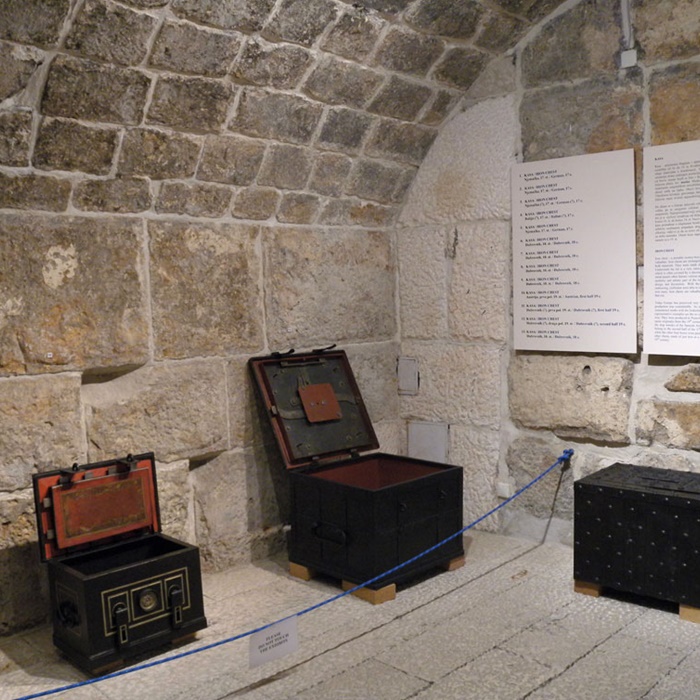
The Cultural Historical Museum is located in the Rector's Palace, only a short walk from Stradun. There are three floors of exhibits, a court room and dungeon on the ground floor. The upper floors have different displays of weapons, clothing items, coins and furniture. Amongst the displays is a photo gallery of the 1991 shelling and bombing.
All the staff are very friendly and knowledgeable and happy to engage and talk with visitors.
Skip the typical sightseeing tours and gain unique insight into Dubrovnik’s criminal history on this unique guided tour.
3. Franciscan Monastery Museum
The Friars Minor Franciscan Monastery Museum is situated at the beginning of Stradun. It houses Small Friar's Pharmacy, the oldest continuously operating pharmacy in Europe. The Pharmacy houses a priceless collection of literature on pharmacology and medicine.
4. Maritime Museum
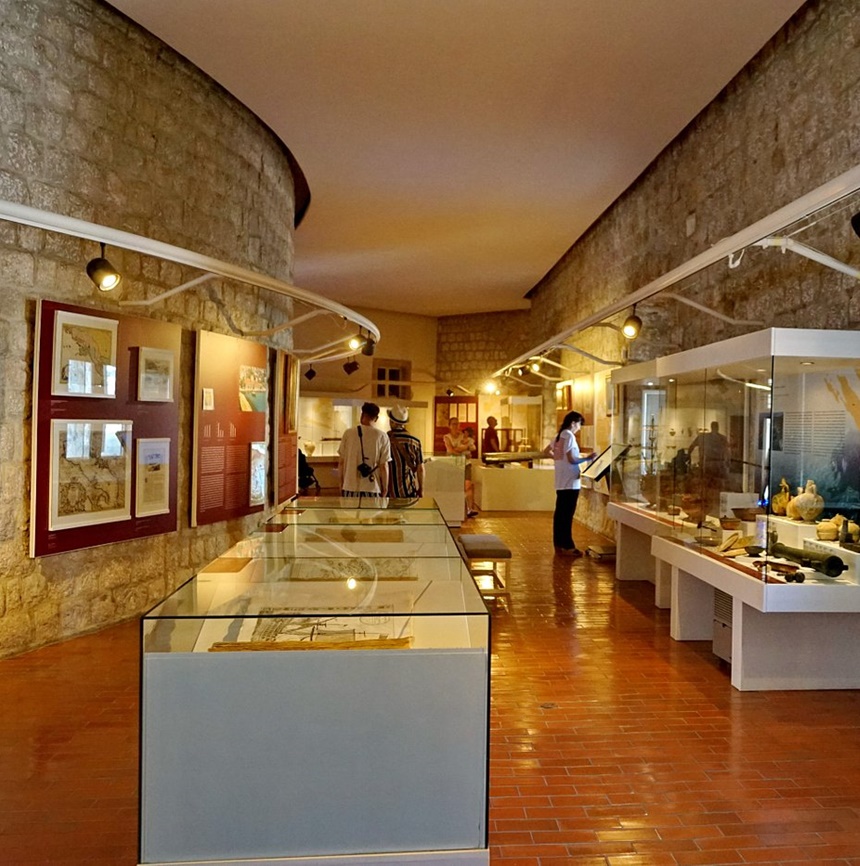 The Maritime Museum in Dubrovnik
The Maritime Museum in DubrovnikThe Dubrovnik Maritime Museum is situated within the historic walls of Saint John's Fortress. It's a nice break stop when walking the City walls. Here you can see great artifacts from maritime history. Nice model ships, old sextants, old anchors and navigation instruments. You can spend here 40-50 minutes exploring.
5. Etnographic Museum
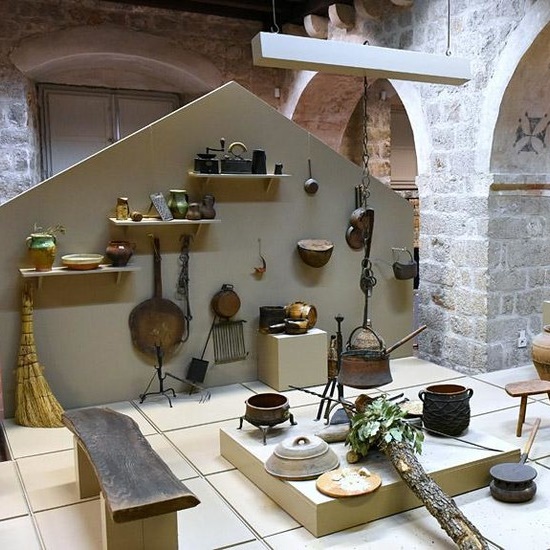
The Ethnographic Museum houses a rich collection of over 6500 artifacts, including captivating traditional attire and intricate lace donated by the great benefactor of the museum Jelka Mis. In addition, the building itself is fascinating, having bee the city's granary for centuries. The displays cover everyday life, food and drink, traditional costumes, jewelry and farming/household equipment.
As a bonus, from some windows you have a wonderful view of the Old town.
6. Museum of Modern Art Dubrovnik
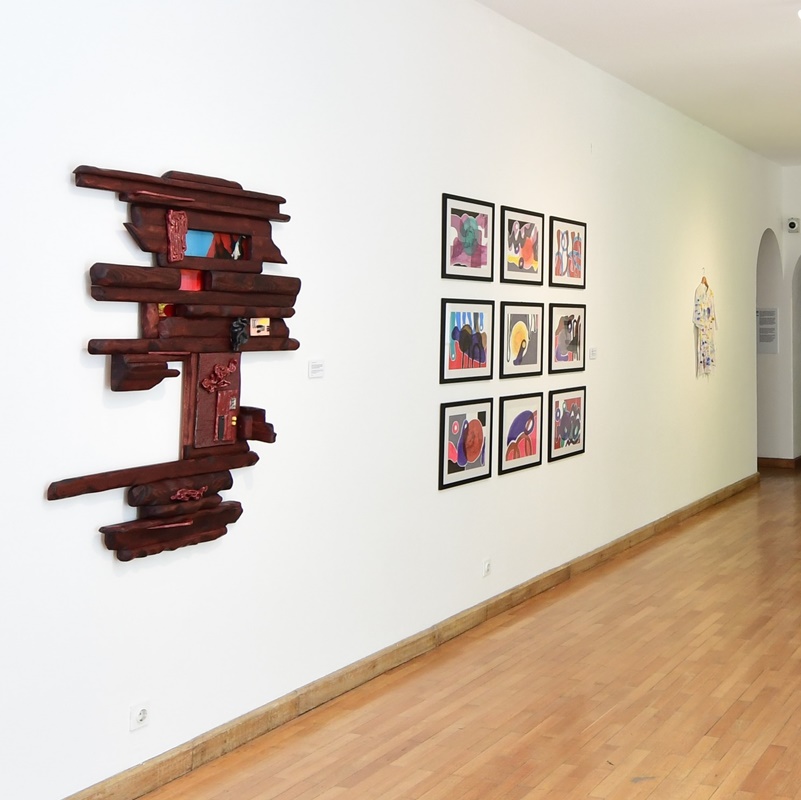 Museum of Modern Art
Museum of Modern ArtThe Museum of Modern Art Dubrovnik houses a collection of 3000 artworks, spanning from the late 19th century to the present day. Here you can see creations of regional and national artists, alongside captivating exhibitions of sculpture, painting, prints, photography, video works and artistic installations.
This museum is situated only a short walk from Old Town (to the east, above the Banje beach).
7. Marin Drzic House
The Marin Drzic House, founded in 1989, is a museum, archive, exhibition area and theater museum, displaying a distinctive collection of flyers, photos, works of art and Renaissance applied art.
This museum can be found at Siroka Street, easily reached from Stradun.
8. Natural History Museum
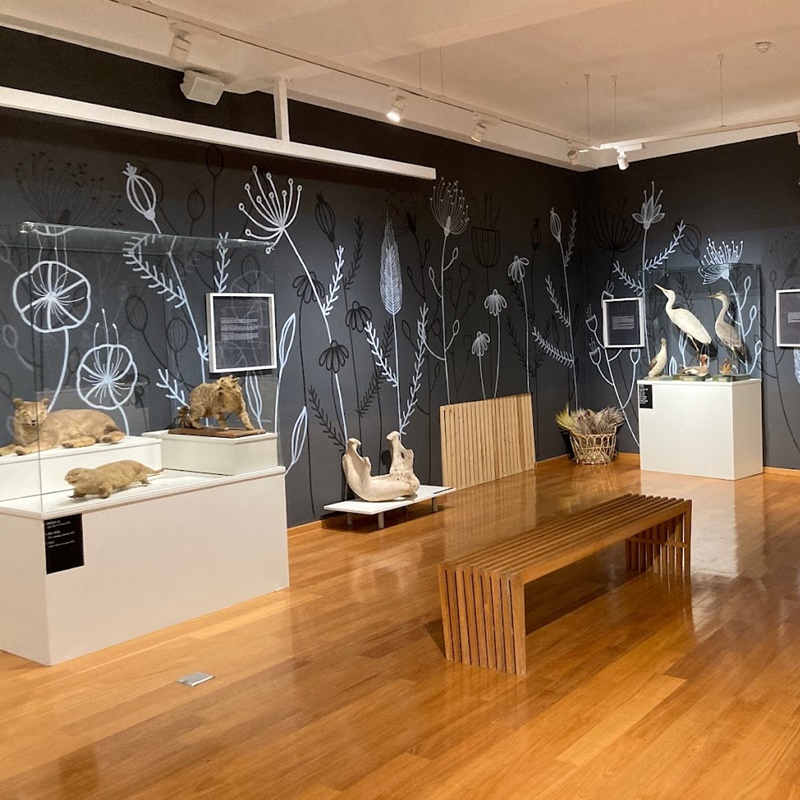
Though small, the museum has some interesting collections. This museum originates from the private collections of pharmacist and ship owner Antun Drobac. If you're interested in stuffed animals such as birds, sharks, tortoises and dolphins then this is the place for you.
9. Dulcic Masle Pulitika Gallery
This gallery homes art work by three important Dubrovnik Artists (Ivo Dulcic, Antun Masle and Djuro Pulitika) on the lower floor. Second floor is where you can see temporary exhibitions from artists around the world.
Access to the this gallery can be gained via street level or via the City walls above.
10. The Pulitika Studio
11. Archaeological exhibitions
Very interesting small museum, with lots of well preserved fragments from various ruined churches in the area. There are some detailed info about everything in both Croatian and English. It's situated in the Revelin Fortress, at the entrance to the Old Town from Ploce Gate.
12. Bukovac House in Cavtat (free with 3-day and 7-day pass)
The birthplace of Vlaho Bukovac, one of the most famous Croatian painters and founders of the modern Croatian painting, has been reopened to the public since May 2004, after a ten-year break and a fundamental three year-long refurbishment.
Bukovac’s birthplace is a typical bourgeois house from the late 18th and early 19th century, a two-storey building with a small garden on the south facade and a spacious back garden on the north.
The house, situated in one of the small streets leading from the Cavtat seafront to Prijeko, has, since ancient times, had the continuity of a living place.
To reach Cavtat (20km south of Dubrovnik) you need to take local bus no.10 from bus station or a boat from Old Town harbour.
13. Konavle County Museum (free with 3-day and 7-day pass)
This is a small museum in the lovely town of Cilipi in Konavle. Here you'll find great diplay of traditional clothing with beautiful embroidery. The museum also shows the history of the silk industry in the area. It's small and simple, but gives you quite a bit of information.
The entrance to Konavle County Museum is free of charge for 3-day and 7-day Dubrovnik Pass holders.
Admission to the Racic Family Mausoleum is included in 3-day and 7-day Dubrovnik Pass with 30% discount on entrance tickets.
Free public transport with Dubrovnik Pass
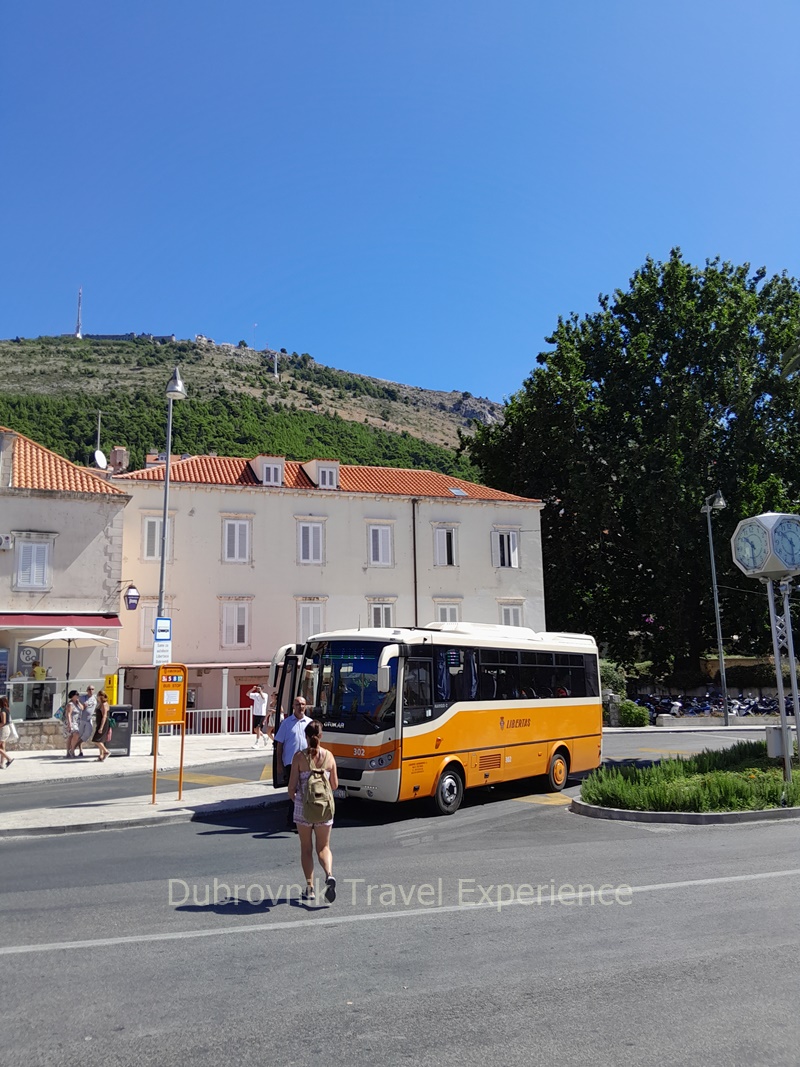 Pile Bus Stop - departing point of most city buses
Pile Bus Stop - departing point of most city buses1-day Dubrovnik Pass offers the 24-hour use of public transport. 3-day Dubrovnik Pass includes 72 hours of free transport using city buses. 7-day Dubrovnik Pass includes 168 hours of free transport (7 days).
Once you are in Dubrovnik, you can pick up your bus tickets from the bus driver (on your first ride) or from Libertas sales points (Pile, Lapad, Grawe, Cable Car, Cavtat).
Special discounts with Dubrovnik Pass
Once you have Dubrovnik Pass, you can have great discounts at range of local restaurants and souvenirs shops across the city.
Plus, you can save on sightseeing as the pass includes discounts on guided tours and various boat trips to the both Elaphite islands and Mljet.
Discover more with excursions to the beautiful countryside (Konavle & Peljesac) where you can taste authentic Croatian food and wines.
With Dubrovnik Pass you can even get discounted tickets for Dubrovnik Summer Festival (10% with 1-day pass, 30% with 3-day pass and 50% with 7-day pass) offering rich and vibrant theatre, dance, classic music, jazz, folklore and film programme every summer from 10th July until 25th August.
More travel info you may like:
- Dining in Dubrovnik
- Where to Stay in Dubrovnik
- Getting from Rome to Croatia
- Walking Dubrovnik City Walls
- Best Time to Visit Croatia
- Visiting Lokrum Island

